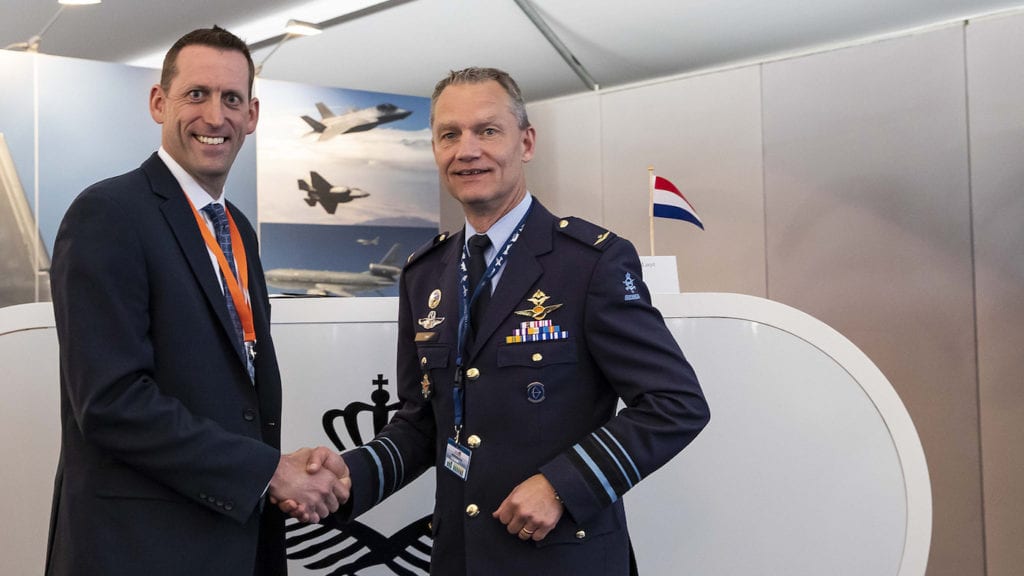
Craig Bries, vice president and general manager, Avionics Service and Support for Collins Aerospace and Lieutenant General J.D. Luyt, Commander of the Royal Netherlands Air Force, commemorated the collaboration at a signing ceremony earlier this year. Photo: Collins Aerospace
United Technologies Corp.’s Collins Aerospace is to provide what the company calls the first global pilot readiness center for the Lockheed Martin F-35 Lightning under an agreement with the Royal Netherlands Air Force.
Beside the F-35 training center, Collins Aerospace is to provide local field service engineers and test capabilities for the F-35 and the Boeing CH-47F Chinook helicopter at Soesterberg, and Woensdrecht Air Base in The Netherlands.
Collins Aerospace is the prime contractor for the CH-47F’s avionics suite and builds parts in the F-35 helmet.
The F-35 pilot readiness center is to feature on-location helmet fitting and altitude chamber training for F-35 pilots.
“Collins Aerospace and the RNLAF are working toward a common goal of supporting the new F-35 pilot readiness center and maximizing the availability of CH-47F avionics,” said Craig Bries, Collins Aerospace’s vice president and general manager of avionics service and support.
Work on the pilot readiness center is to begin early next year.

F-35 full mission simulator. Photo: Lockheed Martin
The announcement of the Dutch agreement comes, as Lockheed Martin tries to move forward on fielding advances in avionics for the F-35, including military satellite communications capability, which, if realized, will make the F-35 the first fighter aircraft with such capability across its mission domains, according to Lockheed Martin.
Earlier this summer, Lockheed Martin said that it demonstrated the ability to integrate F-35 Joint Strike Fighter track data into the Army’s Integrated Air and Missile Defense (IAMD) Battle Command System (IBCS).
During the June Orange Flag Evaluation 19-2 exercise in Palmdale, Calif., and Fort Bliss, Texas., the F-35 sent live track data to IBCS through the F-35 ground station and F-35 IBCS adaption kit, both developed by Lockheed Martin. Transferring the data allowed IBCS to receive and develop fire control quality composite tracks during the exercise. This made the F-35 a more useful sensor for air and missile defense systems, Lockheed Martin said.
The company said that this “enables multi-domain operations and the detection of threats that could challenge ground-based sensors.”
The demonstration came less than a year after Lockheed selected L3Harris to upgrade the F-35’s integrated core processor, which will increase the aircraft’s processing power by 25 times, with upgrades slated to begin in 2023.